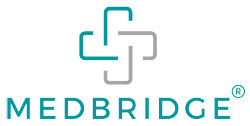While there is a shortage of human doctors in Germany, there are sufficient dentists. Chances for foreign dentists are meager and the path manifold more complicated and long than for human doctors.
Firstly, there is no comparable PG Medical training like for human doctors for dentists in Germany. Graduated dentists from German universities usually start their career as employees of private dental practices, and after a few years open their own practice. They attend mandatory continuous short-term-training workshops once in a while or study part-time, besides their jobs, in highly specialized courses such as a laser in dentistry, etc. if they wish to raise the profile of their private practices. A very limited number of PG training & Medical surgery programs for specialization in orthodontics exist, which are quickly captured by the local dentists.PG aspirants for facial and dental surgery must have completed both university studies: human medicine and dentistry.
 But the major reason why chances for (more) dentists are very low are rooted in the regulations of the German health security system: Dental treatment in Germany takes place in private clinics, very rarely and only in exceptionally difficult cases in hospitals. Treatment costs in private clinics are mainly covered by health insurances. Health insurances regulate the number of licenses issued to private clinics by a ratio of a number of inhabitants per region/number of clinics in order to secure sufficient health care coverage but avoid over-supply. Only if a dentist retires or closes his practice, the license will be issued to another dental care supplier. And there are simply enough German-graduated dentists for the
But the major reason why chances for (more) dentists are very low are rooted in the regulations of the German health security system: Dental treatment in Germany takes place in private clinics, very rarely and only in exceptionally difficult cases in hospitals. Treatment costs in private clinics are mainly covered by health insurances. Health insurances regulate the number of licenses issued to private clinics by a ratio of a number of inhabitants per region/number of clinics in order to secure sufficient health care coverage but avoid over-supply. Only if a dentist retires or closes his practice, the license will be issued to another dental care supplier. And there are simply enough German-graduated dentists for the
available licenses. Furthermore, a private dental practice owner, who competes against his fellows in the same region, very carefully chooses the employees he hires into his private practice because their performance determines his income and reputation. No need to take the risk to hire a newcomer, because there are sufficient local graduates, who blindly know the system already and can please the patients in perfect German.
Taking a look at the legal side: Labor laws require standardized minimum salaries in Germany, independent of the nationality of the employee. And while the minimum salary of human doctors which is required to get a working permit as a foreigner corresponds with the entry salaries of hospitals, they are too high for most private clinic owners to afford under the given performance risks of newcomers to the country. All this said, the effort to learn German, pass FSP and the equivalency exam, which is not only oral – like in the cases of foreign human doctors- but also practical, is not worth pursuing. – Unless you are already the most famous chief dentist in your town. And then, you probably already earn much more there, than you would ever make here (in Germany).
Dr. K Peteriet,
Bonn, Germany.
Dr. Petereit is our Principal and Program director of PGMP, in Bonn. She has guided more than 100 young medical doctors to achieve their dream of PG training in Germany.
Memberships and Associations:
- Deutsche Gesellschaft fur Qualitat – German Association of Quality Management.
- International Evaluator for DAAD- The German Academic Exchange Service.
- Fullbright Alumni Association.
- Rotary International.
Her firm belief and formula for success are: Winning the competition for a high-quality PG Medical training position in Germany – and successfully performed at the job – works like sports: Those who train hardest and smartest will perform best in the game.





